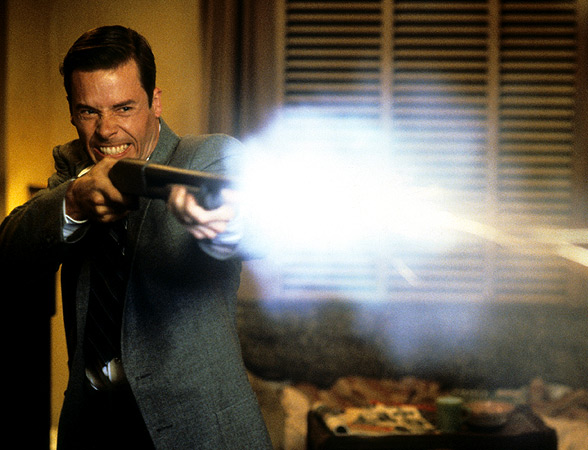It is hard to sit in judgement of a woman who wants to pursue her passion in life. For Lora (played by Lana Turner), she wants nothing more than to make it as a star on the stage. Recently widowed, she packs up her child and moves to New York City to follow her dreams. She takes in an African-American woman and her light-skinned daughter who are homeless. In exchange for a room, this woman becomes the mammy of the picture; kind-hearted, full of good advice and very plump. Lora pursues her passion with blind eye for anything else around her. She meets a fine arts photographer who tells her to give up acting in order to be his wife. She meets a casting director who tells her that she needs to get on her knees to become a great actress. Finally she meets a stage director who only wants her to do his pictures and doesn’t care about her career. She rejects each one singlehandedly while blindly pursing her career and forcing her daughter to think of the maid as her real confidant. Meanwhile the maid’s daughter wants nothing more than to pass and she goes to great pains to forget and put down her darker mother. Lora becomes famous at the expense of not knowing her daughter, her maid or even her maid’s daughter. Finally the maid’s daughter runs off in order to be a lounge singer (she was a very bad singer and dancer, by the way. let’s hope they didn’t hire that actress purely because they thought she could dance and sing.) and the maid dies because her heart has been broken by her own daughter.
Melodrama rules this world with over acting, crazy plot twists and strong feelings. I would expect nothing less from the king of melodrama, Douglas Sirk. The basic premise perpetuates that only young white women who are down and out can really achieve any success. African-Americans are constantly pushed aside, made to do undeserving work or try to pass as white. Most of the interesting drama comes from this push and pull that is manifested by the maid and her light-skinned daughter. Unfortunately all of the drama involving Lana Turner’s character and her relations with both her various lovers and her daughter is what makes up most of the film. Mr. Sirk is famous for injecting social commentary into what would normally be just a sappy and flat story. He was always restricted by the studio head or the Production Code from showing the true side of the social issue. So he had to dress it up and encompass it around a fluffy narrative about a woman who rejects love in order to pursue her dreams of the stage thus eliminating everyone in her life. I guess that is also social commentary. Mr. Sirk, you social commentary bastard. His films do have more layers than you expect when you first watch the film. I hated this film on the first viewing. I wanted so badly to love it like I loved All That Heaven Allows (a really good melodramatic film that is shot so amazingly), but was so disappointed. It was only when I decided to watch the film again in order to review it, could I see past the heightened dialogue and emotions to what is really going on. Both Lora and the maid do what they have to in order to survive. For the maid it is to be willing to do the grunt work in order for her and her daughter to be together. For Lora it is flirting and fighting for what she wants. Of course all of the fighting prevents her from becoming too close to her daughter. Therefore she is blind to the fact that her daughter is in love with her fiance.
I would suggest you watch this film, but first you need to be aware of the role of women in the fifties. You have to know that Lora showing that much ambition was frowned upon and the maid’s daughter passing as white would have dramatic consequences. Her punishment is light compared to how some women met their fates in the fifties after doing exactly what she did. You have to realize this film was made when Brown vs Board of Education was in the very recent past. With these historical facts in mind you can forgive the heightened plot and remember that this was one of the first films talking about such divides in every day society.









